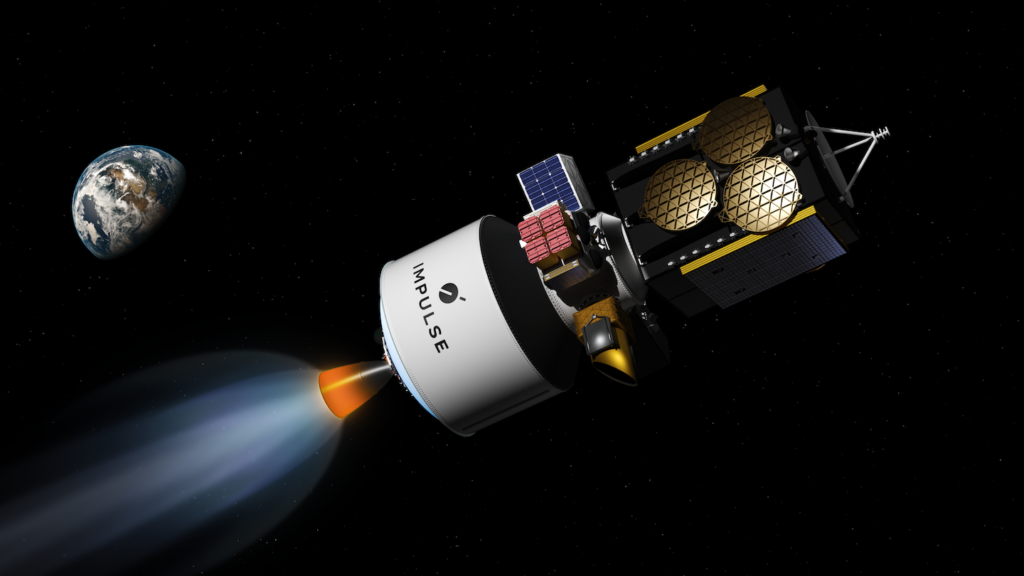Impulse Space got a considerable amount of new money because well-known investors think that moving satellites around in space will soon be a top-rated service
The startup, which was started by Tom Mueller three years ago, said on Tuesday that it had raised $150 million in a Series B round. Impulse is making a line of orbital transfer vehicles (OTVs) that can change where satellites are in space after they’ve been launched by a rocket. Impulse says its OTVs are different because they have chemical propulsion systems that can quickly change motion. A few other companies are also working on OTVs.

So far, the company has talked about two OTVs: Mira, which will send spacecraft to their final destination after ride-share launches, and Helios, a bigger, higher-energy kick stage that will take spacecraft from low Earth orbit to geosynchronous orbit (GEO) in less than 24 hours. There are other choices, but this is much faster.
The alternatives are either more expensive (SpaceX Falcon Heavy to fly directly to GEO or Rocket Lab to have an Electron rocket drop you in a precise orbit) or take longer (lower delta-V pushes to GEO over months).
“Impulse Space’s powerful, high delta-v vehicles are needed because the satellite market wants better maneuverability and quick on-orbit responsiveness,” Founders Fund partner Scott Nolan said in a statement. “Tom has put together a team of experts constantly developing new ways to improve mission-critical technologies. This puts the company in a strong position to deliver on time and lead the way for future space travel.”
Some of Mueller’s early jobs at SpaceX led to him becoming CTO of propulsion, where he oversaw the creation of the Merlin rocket engine that powers the Falcon 9 rocket and the Draco thrusters that power the Dragon spacecraft. Mueller is a well-known figure in the space business. Just over a year after leaving SpaceX in November 2020, he started Impulse.
Since then, the company has reached several important milestones, such as its first mission, which took off successfully in November 2023. Mira went into orbit for the first time on the LEO Express-1 mission. The mission company said that the flight ended nine months after Mira successfully deployed a customer’s payload and achieved the largest-ever orbit raise by an OTV (150 kilometers in 75 seconds) on its first flight.
There are vital signs that this skill is also essential to the Department of Defense: There were several awards for Impulse from the U.S. Space Force earlier this year. Two were Small Business Innovation and Research grants under the force’s Tactically Responsive Space program. That program aims to get private companies to offer skills that could help the Space Force move faster in space.
The startup has over 140 employees and runs primarily out of a 60,000-square-foot Redondo Beach, California building.
Impulse is now focusing on its second mission, LEO Express-2. Later this year, Mira will launch and hold payloads for several unnamed customers. In 2025, a better form of Mira will be launched for the first time. In 2026, Helios will make its first flight.
Founders Fund led this round and included new investors like DCVC and current investors Lux Capital and Spring Tide. 137 Ventures, Airbus Ventures, Alumni Ventures, Balerion Space Ventures, Elysium, First Principles Group, Island Green, Overmatch, RTX Ventures, Tamarack Global, and Trousdale Ventures are some of the other companies that are taking part.
The new money comes after a Series A round of $45 million that ended in July 2023.
